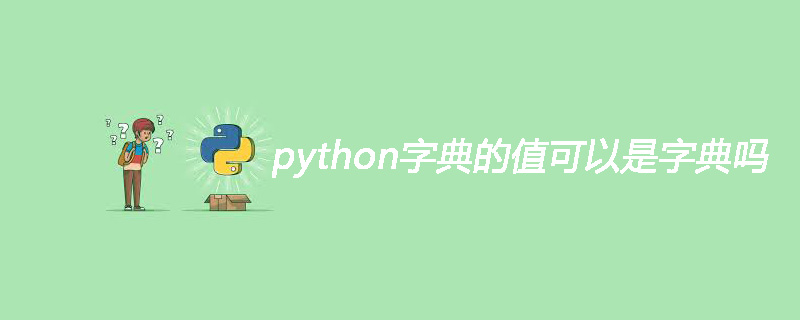
Dictionary is a data type in Python, characterized by the disorder of elements and the uniqueness of keys. The dictionary creation method is {key: values}. The keys in the dictionary can only be immutable data types (integers, strings or tuples), and the values can be any data type. A set of key:values in a dictionary is called a key-value pair item.

#Dictionary is another mutable container model and can store any type of object.
Related recommendations: "Python Video Tutorial"
Each key-value key=>value pair in the dictionary is separated by colon :, between each key-value pair Separate with commas, and the entire dictionary is included in curly braces {}. The format is as follows:
d = {key1 : value1, key2 : value2 }keys are generally unique. If the last key-value pair is repeated, the previous one will be replaced. The value does not need to be unique. .
>>>dict = {'a': 1, 'b': 2, 'b': '3'}
>>> dict['b']'3'
>>> dict{'a': 1, 'b': '3'}The value can be of any data type, but the key must be immutable, such as string, number or tuple.
A simple dictionary example:
dict = {'Alice': '2341', 'Beth': '9102', 'Cecil': '3258'}Construction method for dictionary with value
dic = {}
dic.setdefault(key,{})[value] =1The construction is as follows:
>>dic.setdefault('b',{})['f']=1
>>dic.setdefault('b',{})['h']=1
>>dic.setdefault('b',{})['g']=1
>>dic
>>{'b': {'h': 1, 'g': 1, 'f': 1}}The above is the detailed content of Can the value of a python dictionary be a dictionary?. For more information, please follow other related articles on the PHP Chinese website!